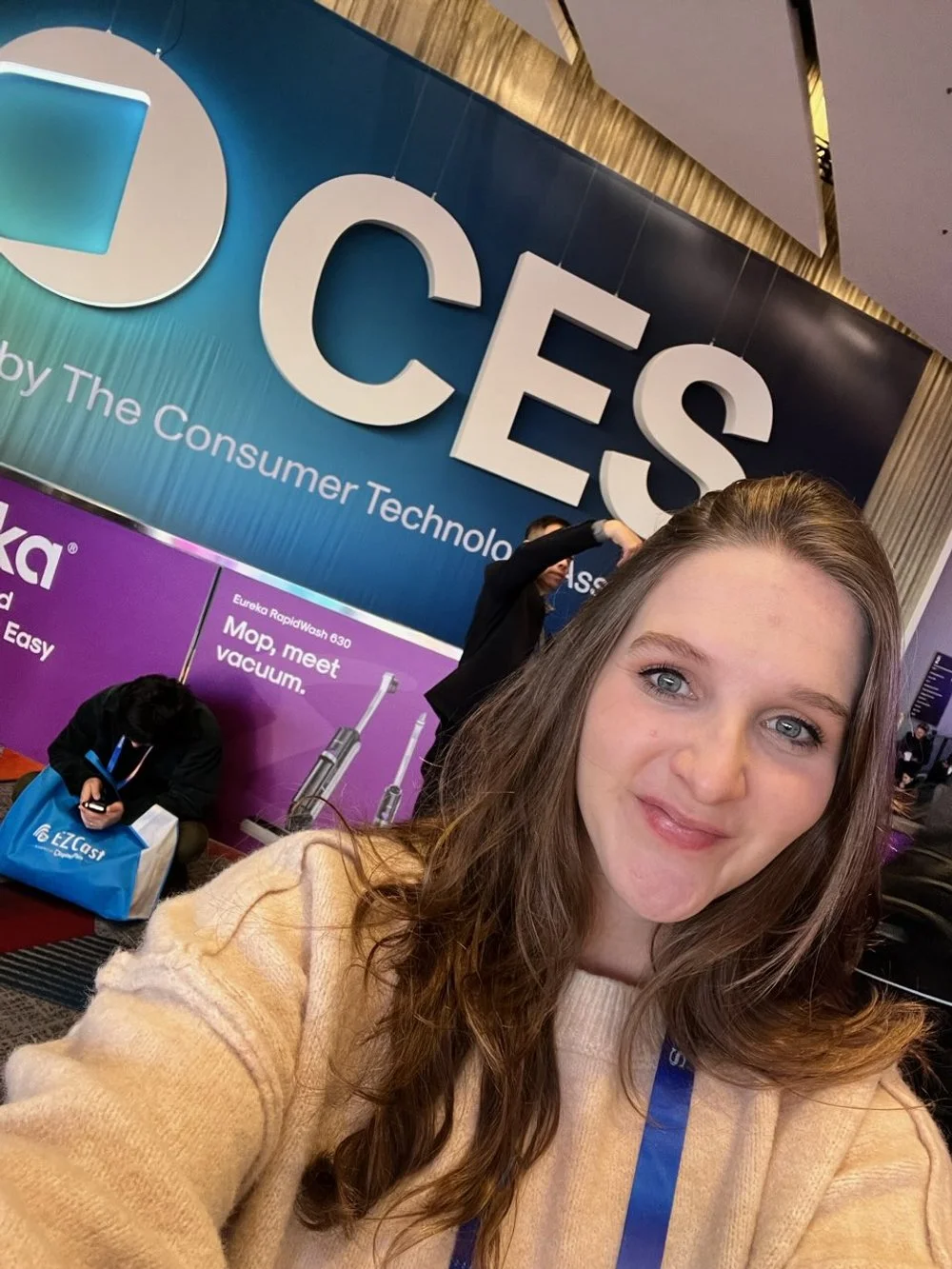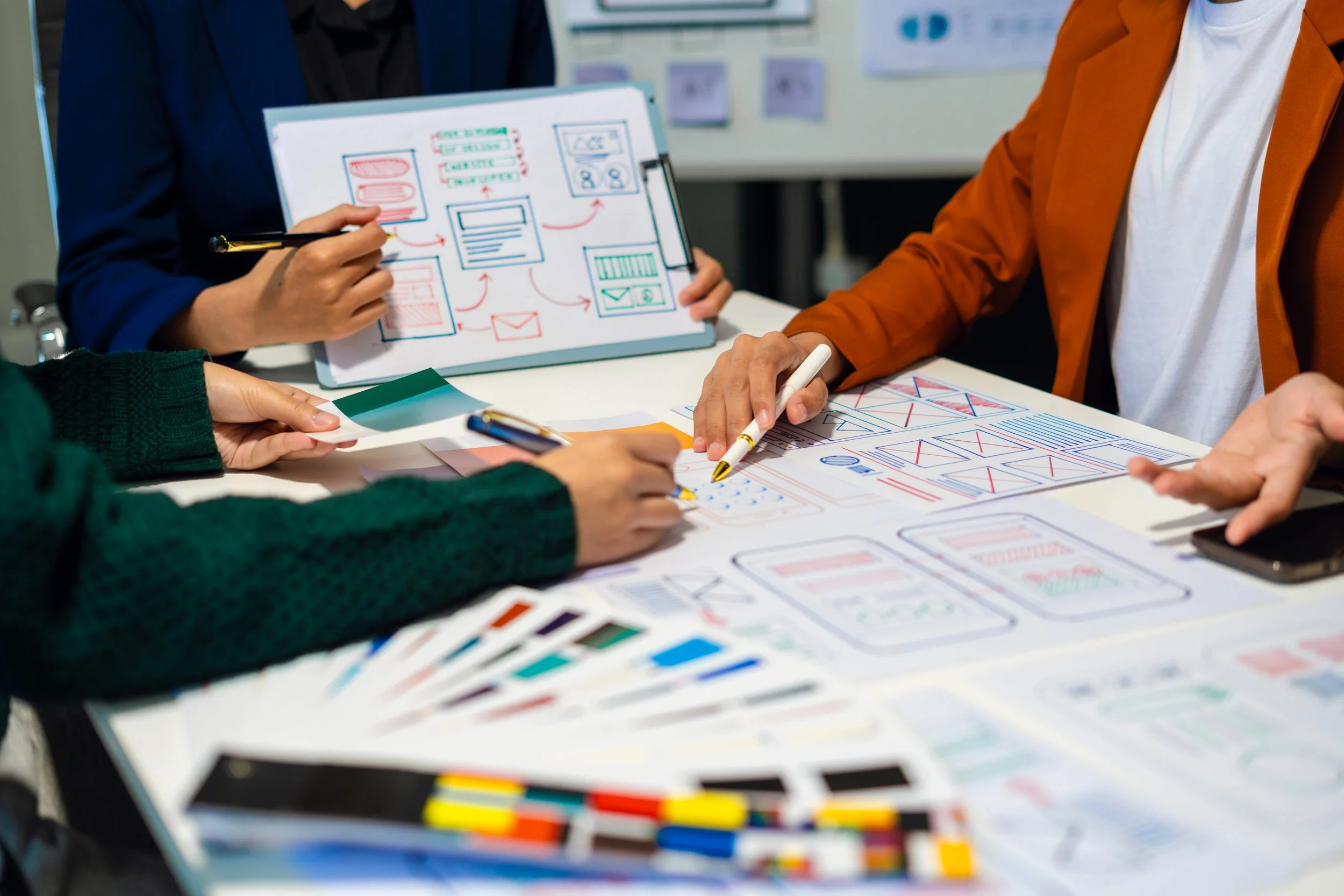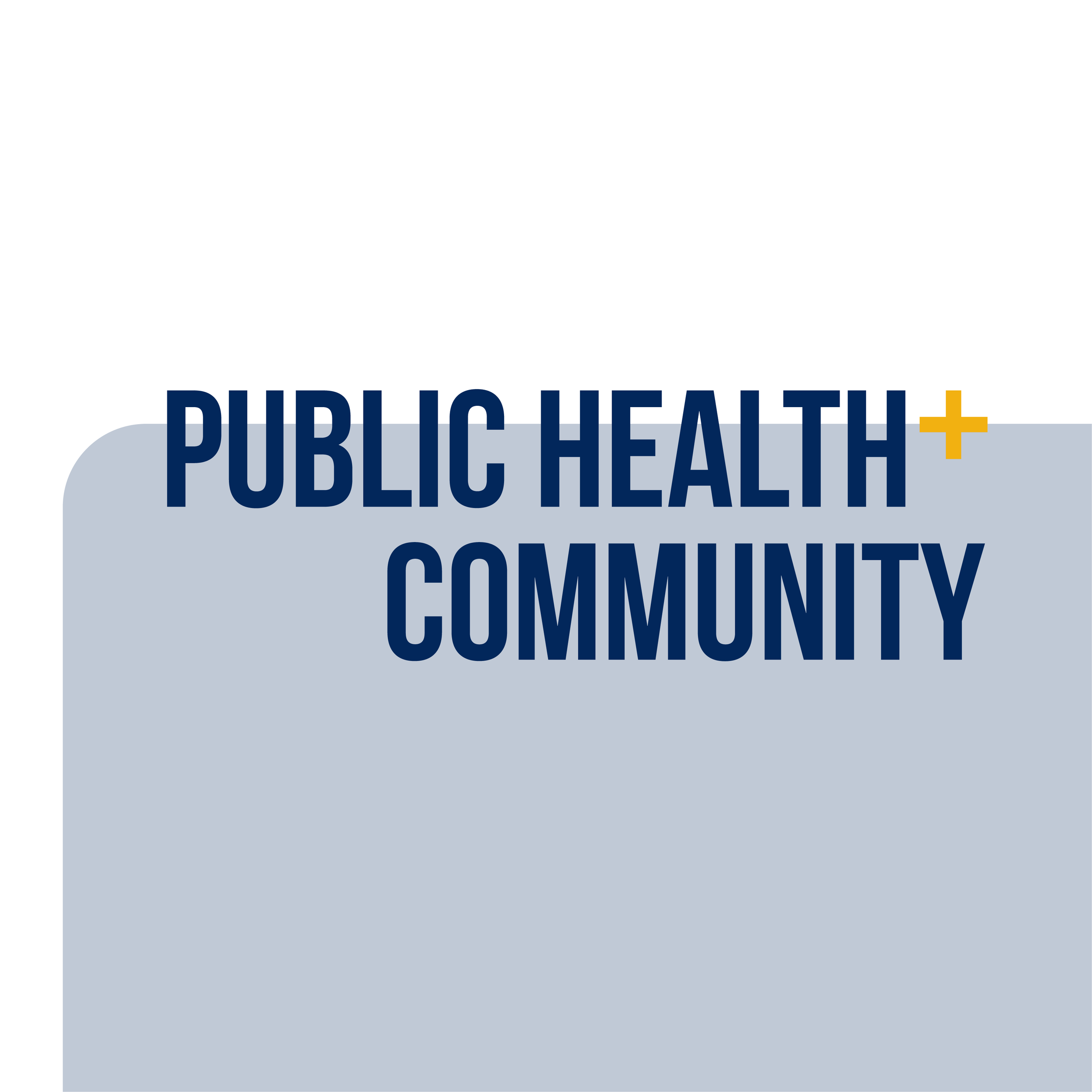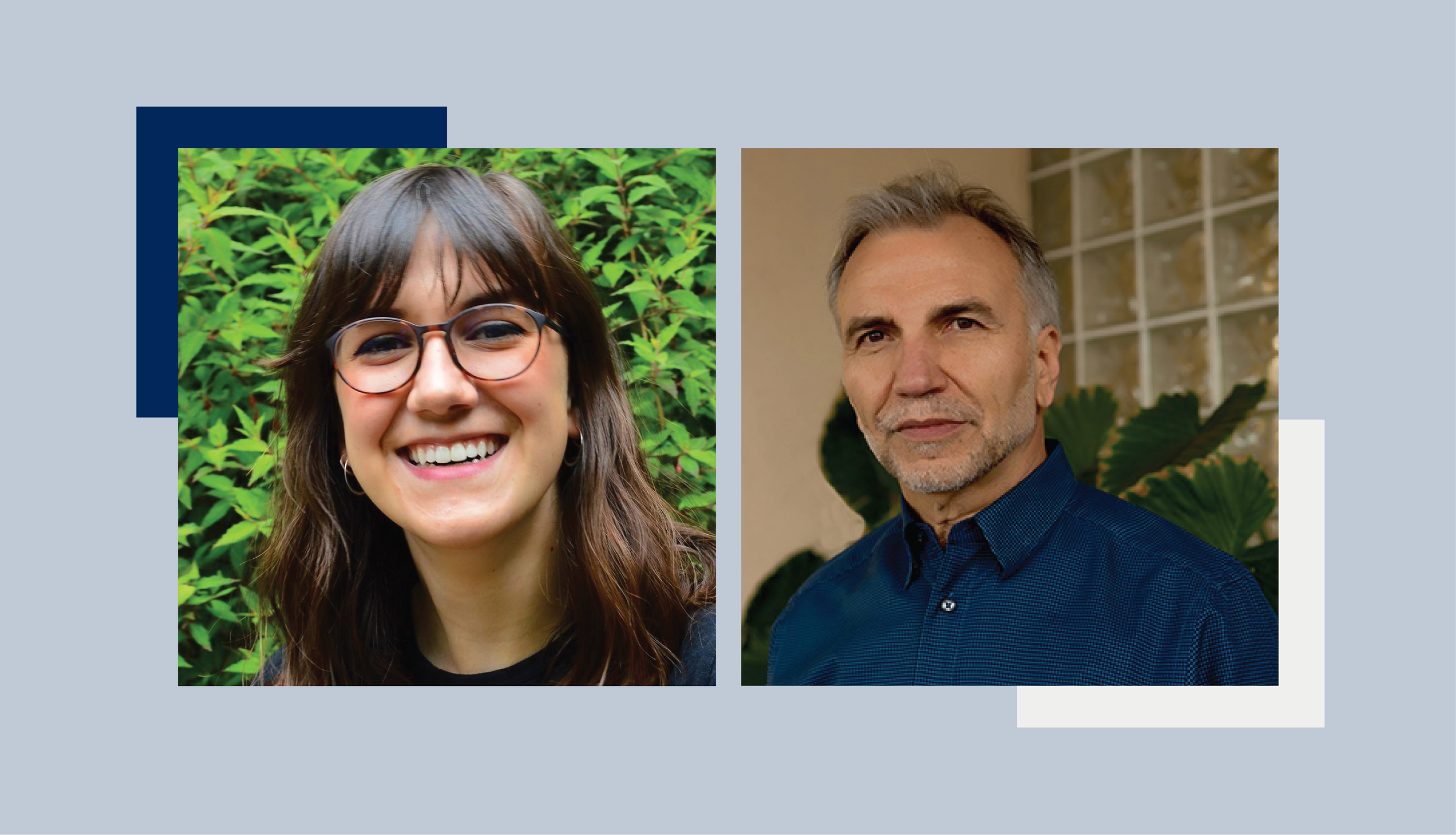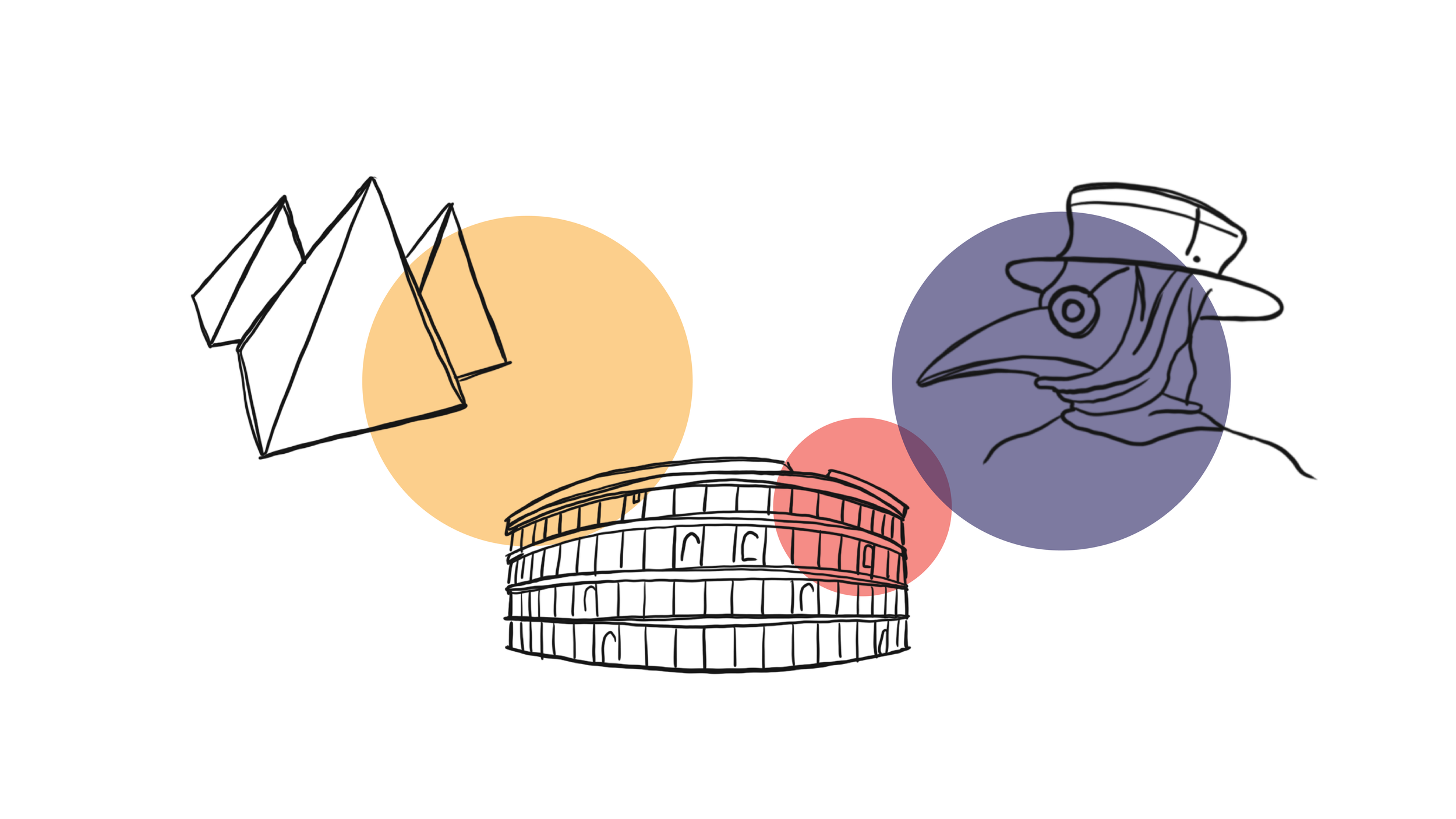Earlier this month, the OSB team had the great opportunity to attend the Georgia Public Health Association Annual Meeting, hosted at Jekyll Island!
Public Health+ Preparedness
At the core of the greatest issues facing our society are issues of narratives - conflicting narratives, false narratives, and outdated narratives. Without effective communication and storytelling, even the best interventions and solutions will struggle. This inspired the spring offering of the PH+ series produced by OSB and Rollins School of Public Health at Emory University: Public Health+ Communication.
The Power of Connectivity: Exploring the Role of Mobility Infrastructure
Public Health+ Communication
At the core of the greatest issues facing our society are issues of narratives - conflicting narratives, false narratives, and outdated narratives. Without effective communication and storytelling, even the best interventions and solutions will struggle. This inspired the spring offering of the PH+ series produced by OSB and Rollins School of Public Health at Emory University: Public Health+ Communication.
Immersive Innovation Labs: A Novel Approach to Solving Public Health Challenges
We are thrilled to announce that HPHR recently published the work of OSB team members Liris Berra, MPH, Sophie Becker and Meaghan Kennedy, MPH. The article focusses on using Immersive Innovation Labs to solve public health challenges.
Atlanta Regional Commission Case Study
Public Health+ Community
Learn more about the Cultivating Data Champions workshop, a highly interactive and engaging session led by Loretta Severin of the Center for Public Partnerships & Research (CPPR) and their IRIS team. The workshop was followed by a discussion featuring Natasha DeJarnett, PhD, MPH, an Assistant Professor in the Christina Lee Brown Envirome Institute at the University of Louisville Division of Environmental Medicine, and Teri Garstka, PhD, Associate Director of the Center for Public Partnerships & Research on why community engagement is so important and how to partner with communities on collection and use of data.
Public Health + Care Economy
Recap
In May’s Public Health+ Webinar, OSB design innovation strategist Sophie Becker sat down with Sara Gardner and Meghan Kluth from the Center for Public Partnerships and Research at the University of Kansas. In their conversation, they discussed the care economy, a sector that considers the multiple types of care across lifespans and its economic implications.
With a background in working at nonprofits as a fundraiser, Gardner has an economic approach to how to address the problems that affect caregivers, care receivers, and their families. Kluth’s journey in this space started with her diagnosis of a chronic illness in college, which has since strengthened her passion for supporting the accessibility and affordability of care for all those in need of it.
"There are only four kinds of people in the world: those who have been caregivers, those who are currently caregivers, those who will be caregivers, and those who will need caregivers.” - Rosalynn Carter
Both Kluth and Gardner emphasized that caregiving touches every person’s life. It can look like a parent taking care of their newborn, a teenager caring for their neighbor with dementia, or a family that works together to support someone with limited mobility. Because it is so pervasive, care is one of the biggest sectors of the economy. According to Kluth, it is worth an estimated 648 billion dollars.
In this conversation, Gardner and Kluth focused on the value of accessible quality care, explaining how investing in caregivers will have positive returns in improving the wellbeing of communities. Gardner emphasizes the importance of seeing caregiving as something that doesn’t just affect those in need of care, but the community as a whole.
“We are social beings, we are interconnected, whether we want to think of it or not. To not recognize the ripple effects of our connections when it comes to need for care is really short-sighted” - Sara Gardner
Overall, Gardner and Kluth believe that improving care in communities has to start with involvement from the local level. Attached to the idea of caregiving are many stigmas that challenge community investment in care.
“Slowly chipping away by having a conversation, asking and normalizing the conversation around caregiving is one thing people can do today to push the boulder slowly to break down that stigma” - Sara Gardner
Reflection
1. Care is universal, almost everyone will be impacted by caregiving in their life.
We will all experience being a part of the care economy. Finding ways of caring that allow people to share that burden can only help improve the experience for everyone.
“When you look at care roles and care needs across life spans, it really represents a significant portion of the population in the United States and across the world. ” - Meghan Kluth
In public health, we often talk about the importance of examining issues across lifespans. Despite the relative unfamiliarity of the term care economy, it truly is a sector that we all interact with and is prevalent in all our lives. At the start of our lives, the vast majority of us will receive care from a parent or relative as children and adolescents. As we age into adulthood it’s likely that we will join the 53 million Americans who are looking after a friend or relative - with 61% of us doing so while we might be employed in some other capacity (Caregiving in the U.S. 2020). Finally, as we enter old age, particularly in our late 70s and beyond, many of us will receive anywhere from an average of 25-38 hours of care per week from another relative. Most of this will be uncompensated and informal. Addressing issues like caregiver burnout, loneliness, and isolation would benefit us all either now or in the future. Additionally, given that many of us will both give and receive care, finding ways of caring that allow people to share that burden can only help improve the quality and sustainability of that care.
2. There needs to be consensus and legitimacy around caregiving language.
As noted by Meghan Kluth, one of the issues around intervening in the care economy is the issues that come with defining a caregiver. Many people take on the role of caregiver at various points in their lives. However, only a small percentage of them formally take on the title of ‘caregiver’ or even consider themselves one.
Not having that shared language can make it difficult to assess their needs and formulate a strategy to address those needs. For example, the needs of a stay-at-home mother of four will look very different from a middle-aged man taking care of his elderly parents. Yet, both fit the role of caregiver and will experience stresses and challenges because of that role. As Kluth noted, “We tend to try to put caregiving in a box, but it doesn't tend to fit in one simple box, it’s a complex issue.”
Kluth noted that there's sometimes a stigma attached to the role that makes people reluctant to consider themselves part of that group. This can also particularly affect those who are being taken care of or helped by a caregiver. Especially if the title isn’t designated as part of a formal job, it can be odd to consider oneself a caregiver. Yet, the only way to start addressing those needs is to start looking more expansively at the role of caregiving and preparing people for what to expect when they enter into that space, rather than if.
3. Caregivers deserve adequate compensation.
Another difficulty in understanding and negotiating the care economy is adequate compensation. One of the issues raised in the seminar concerned identifying productivity. After all, there’s a reasonable challenge in identifying how much someone’s time and money is worth without any external reference to work off of.
This isn’t a new realization. In a phenomenon noted by economists several decades ago, working mothers were noted to put in “second shifts” when taking care of their families after work. All of this work usually goes uncompensated, even though it helps the economy and society as a whole. After all, well-fed and educated children tend to eventually turn into productive members of society (broadly speaking). However, at no point in time do they get compensated for this time spent.
“We already have the mechanisms to pay caregivers, it’s called Medicaid and Medicare. We have to make some policy changes to open up the billing code. We have to generate the public will to make that happen… I think change happens from the ground up, it's about informing people about giving people the language to use, it's about communities demanding different ways of doing things." - Sara Gardner
Fixing this unjust oversight will require reimagining ways of measuring productivity. Collecting, aggregating, and sharing data will be important for this effort. It will also require a broader reorientation of our ideas around just compensation and what roles in society need to be valued more. While this won’t address all the stresses and challenges that caregivers face, it would be a start toward healthier participation in the care economy for all caregivers and their loved ones.
Writing By:
Odiraa Okala, Public Health Innovation Analyst & Nia-Simone Eccleston, Design Strategist Apprentice
Public Health+ Webinar Series: Season 2
Public Health + Social Entrepreneurship
RECAP
In April’s Public Health + Season 2 Webinar, Isabelle Swiderski, Founder of Seven25, sat down with Dr. Ndunge Kiiti to discuss the intersection of public health and social entrepreneurship. Dr.Kiiti currently serves as an adjunct associate professor in the Department of Global Development at Cornell University and at Emory University’s Rollins School of Public Health. With more than 30 years of experience in international development, she has expertise in education, communication, health, and entrepreneurship. To date, Dr. Kiiti has worked across numerous communities in Kenya, Rwanda, and Ethiopia.
“A human becomes a human because of other humans.” - African Proverb
Growing up in rural Kenya, this proverb was the cornerstone of Dr. Kiiti’s upbringing and has largely influenced her career path. She learned at an early age that “life is about people, it’s about relationships.” Within her work, she recognized that the key to success is being willing to engage in mutual learning and humility with others.
She uses this quote from colleague Ravi Jayakaran at Medical Assistance Program (MAP) International to describe development as “a process of reducing vulnerabilities and increasing capacity.”
For Dr. Kiiti, helping create sustainable businesses that will actually make an impact on the ground means creating intentional partnerships. She believes in the bottom-up approach to “work and walk alongside people… asking them what their needs [and] what their issues are.“
Throughout her years of experience, what continues to give her hope are young people. Her call to action for young people is “to remain open, to engage globally… understand the world as is.. to put volunteerism and service into their educational process and to stay engaged.”
Reflection:
From her experience working globally and across different cultures, Dr. Kiiti reminds us that we are all human beings. Regardless of our education level or experience, we can learn from one another. It is critical to recognize the biases and assumptions we hold when trying to help people. In order to accelerate social entrepreneurship and deal with challenges faced across communities, here are some key lessons we want to highlight:
1. Focus on assets not deficits
An important takeaway from Dr. Kiiti’s experience is that one of the keys to successful development is focusing on assets. “There are so many assets we ignore because we are not listening.” Many of us are trained to identify the problem and develop a brand new solution. Rather, we should shift our thinking to recognize that it’s not about trying to change existing systems but instead “build and strengthen what they already do.”
2. Invest in people
Dr. Kiiti believes it’s important for development approaches to have a long-standing impact. She makes a point to consider “what is doable, what is sustainable, and what will really make a difference on the ground …” For Dr. Kiiti, investing in people is key to creating lasting social change and education is a prime example.
“We’re seeing [educated youth] turning back and saying ‘let me educate my younger sister, my younger brother, and the community.’ That is what is sustainable to me in helping these families come out of poverty.”
3. Build intentional partnerships
Dr. Kiiti has learned over the years that “the most unique partnerships are those who you never expected to work with.” However what many people fail to remember is that partnerships take time, resources, and in actuality are a lot harder to do and maintain. Both Swiderski agrees with Dr.Kiiti, noting in her own work that “collaboration in practice is a lot more difficult than collaboration in theory.” To build successful and sustainable partnerships, one needs to be able to listen, willing to learn, and ready to invest in growing mutual relationships.
Social entrepreneurship is the future of many economies and so it’s critical that we operate within the cultural context of the society rather than working against it. Dr. Kiitti reminds us that openness and humility are key.
Writing By:
Emily Zheng, Public Health Innovation Analyst
Emily is a Master of Public Health student at Emory University's Rollins School of Public Health. She is part of the Behavioral, Social, Health Education Sciences department and is also pursuing a certificate in Social Determinants of Health.
Liris Stephanie Berra, Public Health Innovation Analyst
Liris is a Master of Public Health student at Rollins School of Public Health, Emory University. She is part of the Global Health department, pursuing a concentration in Community Health Development and a certificate in the Social Determinants of Health.
Public Health + Clinical Medicine
Recap
In March’s Public Health+ Season 2 webinar, our very own Meaghan Kennedy, Founder of OSB and epidemiologist by training, sat down with Dr. Michael Mina, the Chief Science Officer at eMed Digital Healthcare to discuss the intersections of public health and clinical medicine.
Dr. Mina comes from an incredibly diverse background with cross-sectoral experiences that positions him to work at the crossroads of public health and clinical medicine.
He began his undergraduate studies at Dartmouth University’s School of Engineering, Dr. Mina took a pivotal career shift, opting to practice Buddhism as a monk in the mountains of Sri Lanka. During that time a tsunami caused Dr. Mina to evacuate to a refugee camp. There he recognized his experience in engineering with his interests in public health and medicine could come together.
He returned to pursue an MD and Ph.D. at Emory University, where he studied bacterial co-infections and live attenuated vaccines. The culmination of his studies led him to a professorship at Harvard T.H. Chan School of Public Health and School of Medicine. When the pandemic struck, Dr. Mina had a unique opportunity to use his experience as a physician, epidemiologist, and immunologist in the midst of a public health crisis. He decided to leave academia once again, but this time to join eMed, a pioneering digital health company. eMed offers telehealth services and at-home test kits that empower people with affordable and convenient access to healthcare.
He joined eMed to “break down barriers to keeping people healthy” and join their mission to democratize healthcare, because he believes that “if there’s any human right that we should have, it should be knowing what’s going on inside our own bodies, on our own terms.”
Dr. Mina spoke greatly on the failures and successes of public health and medicine. It had been made very clear during the pandemic that medicine and public health are “not always in sync with each other” and the decisions made are a “reflection of the erosion of public health and medicine and being able to bring them together in a constructive way.”
He believes that “public health thinking and medicine [need to be brought] together in a constructive way.” In order to produce the problem-solvers that transcend disciplines, we need to transform educational systems to avoid being too dogmatic in thinking that their training is the only “right way.” In the meantime, Dr. Mina hopes to continue to build sustained public health initiatives that combine all his cross-disciplinary training to build momentum to accelerate applied public health solutions.
Reflection
Dr. Mina gave us a breadth of information to think about, but there were two takeaways we wanted to focus our attention on:
1. Public Health and Clinical Medicine are not in sync with each other.
As Dr. Mina stated, the poorly defined roles of both these disciplines have led to poor decision-making and confusing messaging for the general public. An example given in the webinar is the recommendation of quarantining someone (i.e. isolation).
“That is absolutely not a medical practice, that is purely a public health practice. I have never met a doctor who has prescribed isolation for [the patient’s] own benefit. It gives [their] family a benefit and it gives the people around [them] the benefit that [the patient doesn’t] infect them.”
That’s where there has been tension. The role of medicine is focused on the individual, the patient sitting in your exam room, whereas public health is looking broadly at the entire community. “Medicine comes in when public health has failed.” The two disciplines are undoubtedly intertwined in that they both are working to achieve the same thing: to keep people and communities alive and healthy.
The problem is there needs to be a better way to work together and the pandemic was not the ideal time to figure that out. As Dr. Mina says, “A pandemic is not a time to be tunnel visioned, it’s not a time to keep silos up, it needs people being able to talk across the table to each other, it needs economists, public health people, physicians to all carry equal weight.”
2. Cross-disciplinary thinking is the way forward.
As students and professionals, we find ourselves isolated in the thinking and teachings of our respective majors, departments, or fields. We hold our new knowledge as convention and the only “right” way of doing something. Dr. Mina claims that:
“The most important challenges are going to be solved today and in the future by bringing disciplines together… We've done a lot of fundamental research over decades and centuries and millennia to really understand pieces. But the real change that has happened in society has come when disciplines are woven together.“
It’s important to remember that each discipline and field only offers a single perspective or framework for problem-solving. So imagine how much more powerful the solutions can be when these disciplines are brought together. To put it simply, we need more team players who are committed to life-long learning and are willing to go against what we are traditionally taught and trained to do.
Rather than this webinar just being about how public health and clinical medicine intersect, it is a wake-up call for all of us to examine in our own lives and professions how to break down silos and better work together to accelerate impact.
Writing By:
Emily Zheng, Public Health Innovation Analyst
Emily is a Master of Public Health student at Emory University's Rollins School of Public Health. She is part of the Behavioral, Social, Health Education Sciences department and is also pursuing a certificate in Social Determinants of Health.
Liris Stephanie Berra, Public Health Innovation Analyst
Liris is a Master of Public Health student at Rollins School of Public Health, Emory University. She is part of the Global Health department, pursuing a concentration in Community Health Development and a certificate in the Social Determinants of Health.
Public Health+ Advocacy
Public Health+ Homelessness
Public Health + Food Systems
Missed the Public Health+ Food Advocacy webinar? No worries, read the recap and reflection from Emily Zheng.
Public Health+ Design Recap
Missed the Public Health+ Design webinar in October? No worries, read the recap and reflection from Emily Zheng.
History of Public Health
Public Health + Cross-Sector Experience
A recap of our last PH+ webinar of the semester. OSB founder, Meghan Kennedy, MPH, in conversation with Niles Friedman, MPH, about the value of cross-sector experience and how to navigate career changes.
Emory REAL Experience
Public Health Innovation Analysts from Emory University’s REAL program, Liris Berra and Ryan Mathura, reflect on their experience this year at OSB.

